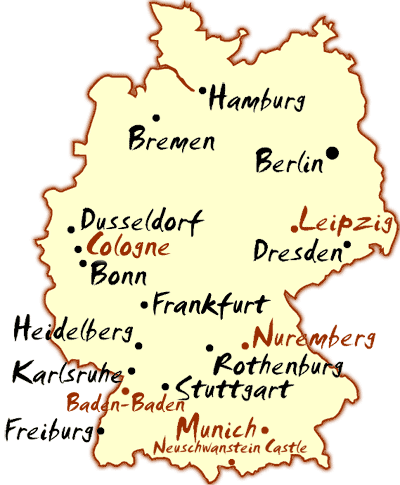Germany to press at G20 for a world loan registry
 Berlin - German experts compiling a brief for the G20 summit in Washington proposed in Berlin Friday that a worldwide register of loans be set up so that governments can see at a glance where debtors might default.
Berlin - German experts compiling a brief for the G20 summit in Washington proposed in Berlin Friday that a worldwide register of loans be set up so that governments can see at a glance where debtors might default.
German Chancellor Angela Merkel said she anticipated that the Group of 20 leaders would on Saturday issue "work instructions for the next 100 days" to experts. Those experts would then report back on world economic reforms at a later summit.
Merkel is to argue in Washington for a set of reforms drafted over the past two weeks by a panel of leading German economists.
"There are some very interesting proposals in it," she said. "They include the idea of a map listing the risks faced by financial institutions operating worldwide. There are also recommendations on executive bonus systems and a register of loans."
Merkel said the approach was not so much to prohibit certain sorts of investment as to make investments more transparent.
A risk map would allow the markets to see which institutions faced heavy risk from futures trading.
Investment products with very high risks attached to them "would probably become much rarer in future."
"I'm travelling to Washington with optimism. I think there is pressure on the negotiations to complete the job now and show that the world has learned from this crisis, which has had dramatic effects."
German Finance Minister Peer Steinbrueck highlighted proposals that would balance the practice of cash bonuses for strong performance by banking executives with programs to cut their earnings for bad performance.
The report criticizes short-term performance bonuses for financial executives, saying they were a significant cause of the global financial crisis, according to officials who saw the document.
But the experts said the government can only encourage a system of bonuses and penalties, not legally mandate it.
The group pressed for a world registry of big loans, similar to a database of big domestic credits which Germany already operates, so that governments can see at a glance how great the credit risks in a nation are.
Otmar Issing, a former chief economist of Germany's central bank, the Bundesbank, who chaired the group, said, "after overcoming the crisis, the job we had was to create a framework that makes a recurrence impossible, at least on this scale."
He said the recommendations were not dreamed up by the panelists but came from many other experts.
"We didn't set out to create a new world financial architecture in 14 days," he said, referring to the tight timetable Merkel gave the panel. "Our job was to identify the weaknesses as a whole and then propose a framework that was internally consistent."
The Issing group also called for annual public reviews by independent auditors of ratings agencies.
Merkel and Steinbrueck were to leave later for Washington, where the meeting begins with a Friday evening dinner, followed by substantive talks among the Group of 20 on Saturday.
Steinbrueck said, "perhaps we'll have something more concrete in the spring of next year." (dpa)